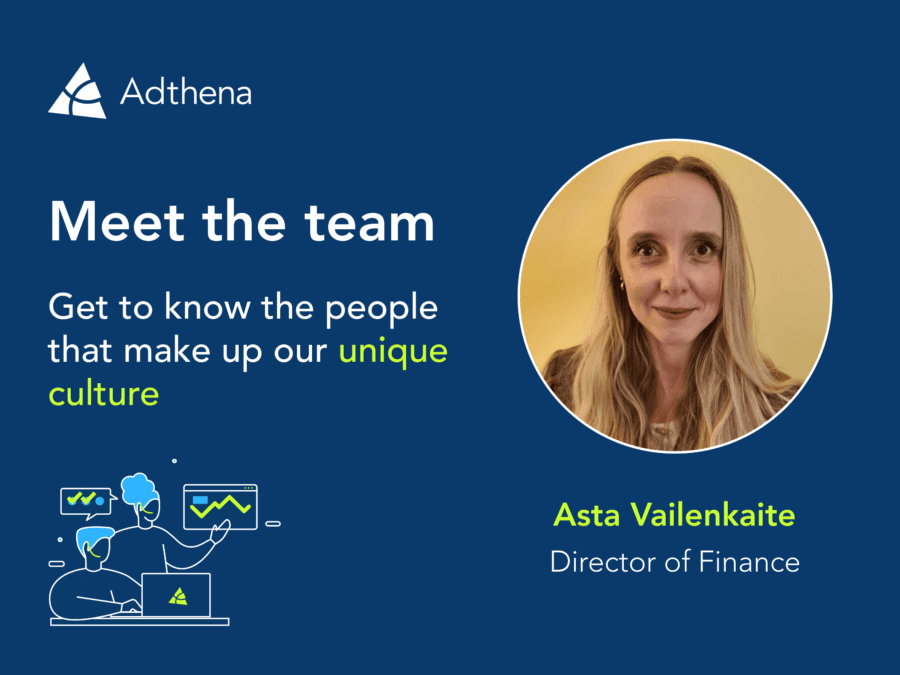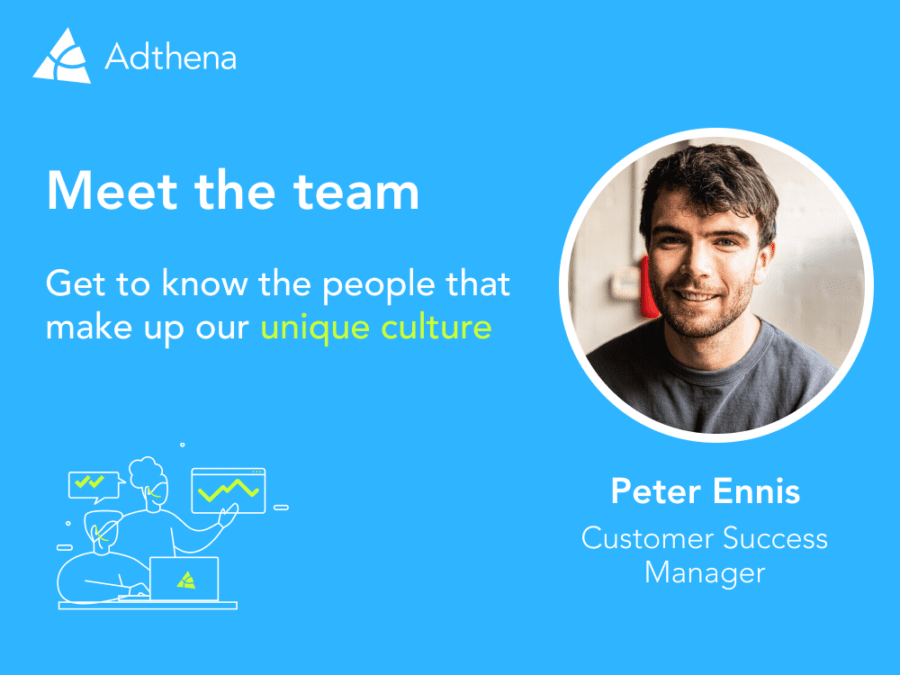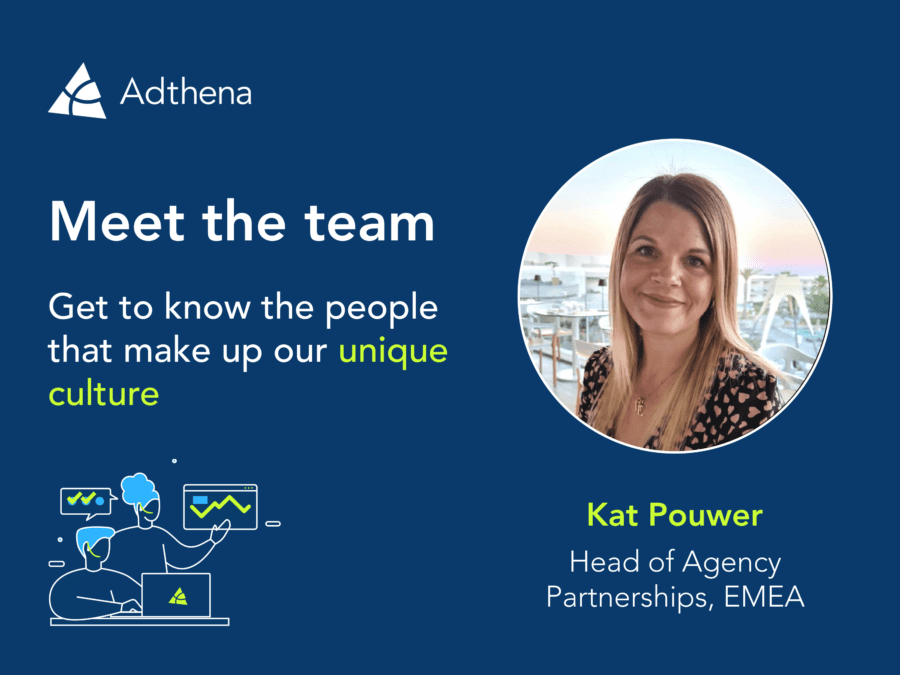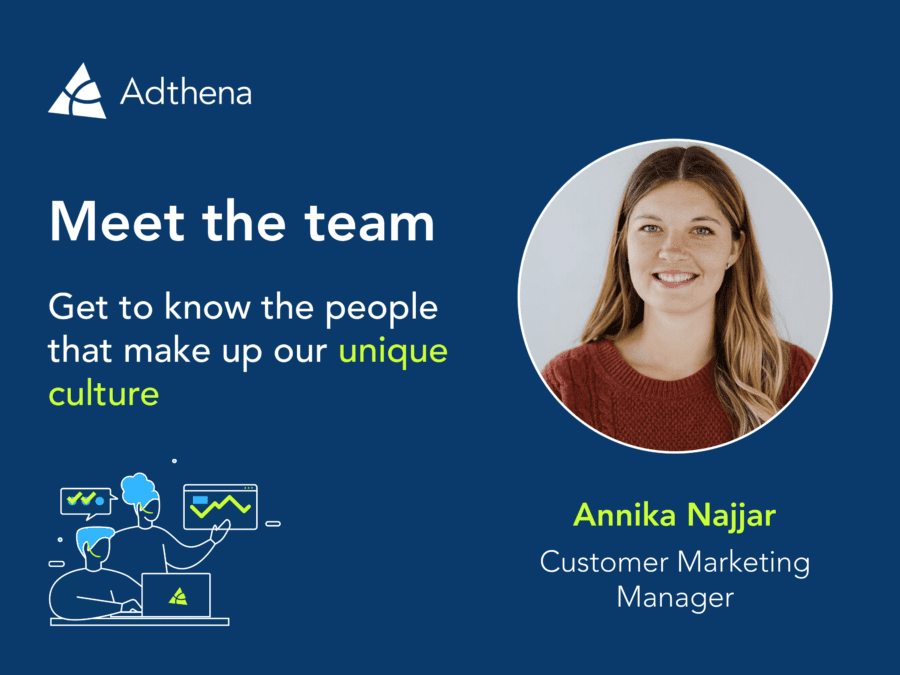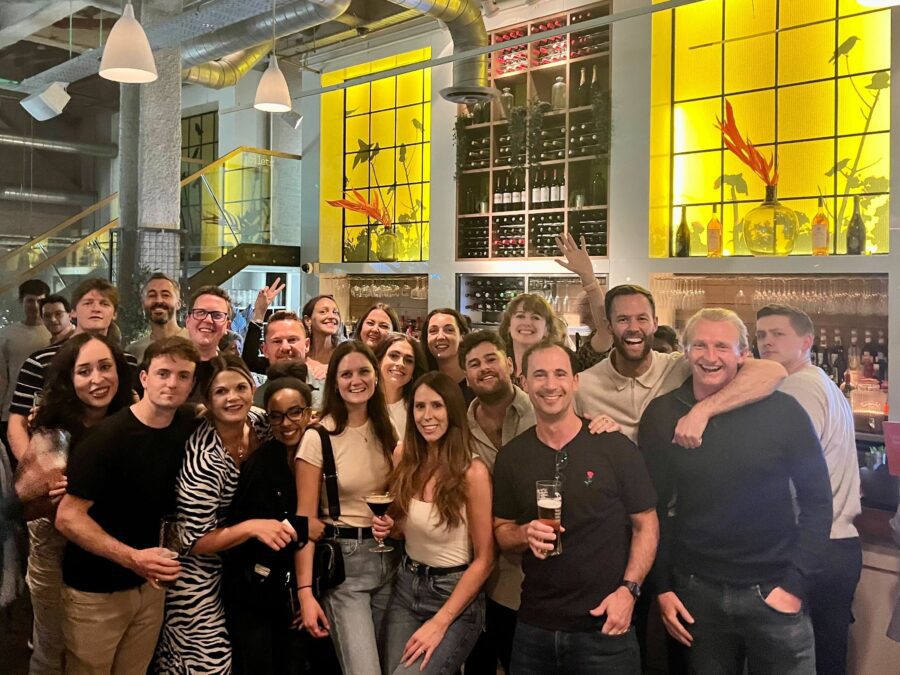It’s International Women’s Day on 08 March, which celebrates women’s achievements and raises awareness against bias, so we’re quizzing one of our leadership role models here at Adthena – Asta Vailenkaite, Director of Finance – about her journey into leadership, building a team, and insights into the world of Finance.
After graduating from the University of Exeter with a First in Economics and Finance, I began my career at Deloitte’s M&A Tax Team where I spent over three years working on numerous Private Equity transactions identifying key risks and structuring acquisitions effectively. Alongside my work, I completed ACA training and became a Chartered Accountant.
After a few years at Deloitte, I realised that it was time for a change. I was hungry for a faster pace, a broader scope of responsibilities, and seeing through the impact of my contribution. The Tech startup world ticked all the boxes and this is how I ended up at Adthena.
Gina: Describe your current role at Adthena, outlining your main goals and how you measure success.
Asta: My role at Adthena evolved over the years. I started as a Finance Manager, at a very different Adthena back in 2017. The company grew from a scrappy start-up to an international business five times the size and is now one with much larger strategic priorities.
I currently oversee all finance operations at Adthena globally which range from supporting strategic and operational decision-making of the leadership team to budget oversight, compliance obligations, and running tactical and vital day-to-day accounting processes. Finance is a core function that enables the rest of the business. Therefore, my goals are both internally focused on my team’s operational efficiency, having robust and scalable processes to meet the growing business needs, as well as outward looking and enabling strategic growth and value creation.
Gina: Reflecting on your journey, what pivotal moments shaped your path to leadership? What personal insights have you gained along this journey?
Asta: It is really hard to pick out specific pivotal moments. I see my career as an accumulation of challenges and growth that came from overcoming them. Working in a fast-paced environment, and as part of a small team, I had to find ways to resolve my own problems with limited support. For example, moving from an individual contributor role to hiring and managing the team was a new skill I had to master over the last few years. I still remember the first time I had to interview a candidate – I was probably more nervous than them!
What I came to realise is that life is filled with first times and it is impossible to be an expert in everything and trying to do so will limit one’s growth. I think girls in particular are often brought up to be well-behaved perfectionists while boys are encouraged to experiment and take risks, which can make women less inclined to step outside their comfort zones. I think the most valuable skill I have learned over the years is to accept that it is OK for my work not to be perfect. In fact, it is often counterproductive as it narrows one’s focus and wastes time and resources on marginal gains.
Gina: What challenges did you face when entering the finance field or assuming a leadership role within it?
Asta: I think the workplace environment has improved since the time I began my career. When I started in finance, the industry had some of the largest gender pay gaps in the country. This is one example of more systemic issues, and while there is so much more to be done, the pay gap has shrunk and things are moving (albeit far too slowly) in the right direction, as companies are realising how much value new ideas, different perspectives, and diversity can bring.
Gina: Having been with Adthena for over 6 years, how has the company supported your career growth?
Asta: Adthena has been a wonderful place to grow. It has given me space to experiment and try out new things. The definition of leadership is taking others where they haven’t been before, and moving outside of our comfort zones daily in a fast-paced growing business that constantly presents new challenges. I think often people think of “support” as hand-holding through challenges. This is not what Adthena is like. Instead, I was given a lot of freedom and trusted to find the best ways to deliver results, which accelerated my career as well as my personal growth.
Gina: What advice do you have for aspiring female leaders aiming for management roles?
Asta: Embrace challenges and accept that every leader fails once in a while. Aiming for perfection every time is debilitating and sets an unrealistic and unattainable standard.
I believe that we also need to take a more holistic approach. Building a life outside of work that supports your career ambitions and personal growth is equally as important. You do not necessarily need a mentor, but surrounding yourself with ambitious friends who will provide advice and share their own perspectives is extremely valuable. Building romantic relationships which are true partnerships is also important so that women are not left to face all / most of the burden of domestic duties with little time and energy left to focus on work. Navigating through our personal lives can be even trickier than pushing yourself up the career ladder and taking on new challenges at work, but it has a significant impact on how far or fast you will progress and the importance of it should not be underestimated
Gina: How do you approach situations involving bias, aligning with the theme of IWD 2024, #InspireInclusion?
Asta: I think bias, unlike outright discrimination, is inherently subconscious and much harder to identify. The first step in overcoming it is educating ourselves and those around us, and accepting that we are biased whether we like it or not. I am particularly conscious of my bias in the hiring process. I think the traditional interview techniques often favour men who, on average, tend to be more self-assured and confident. Designing a hiring process that involves testing someone’s ability rather than how confidently they can talk about their achievements is crucial in selecting the best talent and overcoming biases. The same is true in performance reviews. I think all leaders should consider whether they are rewarding those who perform best or whether their opinions are influenced by those who talk about their achievements the most. Identifying such biases is difficult but it is important, as it truly allows companies to build diverse and high-performing teams.
